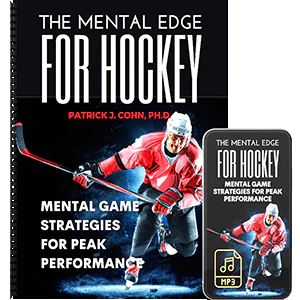What is the most critical aspect of the goal achievement process?
Goal achievement is a multi-step process. The first step is to set specific, measurable, and realistic goals. Concrete goals provide direction and motivation.
The second step for goal achievement is to develop a well-defined but flexible plan. A structured yet adjustable approach outlines clear steps while allowing flexibility to adapt to challenges and unexpected obstacles.
The next step in the goal achievement process is the most essential element—executing the plan. A well-crafted plan is meaningless without consistent and purposeful action.
In other words, the plan won’t work if you don’t work the plan. The key to achieving both short-term and long-term goals is showing up every day, putting in the effort, and staying disciplined, even when motivation fades.
The action phase requires taking deliberate steps, tracking progress, and making necessary changes to stay on course. The action phase of the goal achievement process is not a once-in-a-while proposition.
To achieve big goals, your efforts must align with your goals. You can only reach your true potential as a hockey player when you consistently commit to high effort and take personal accountability for your actions.
Take, for example, Kashawn Aitcheson. Aitcheson is a defenseman on the Barrie Colts of the OHL and has worked himself into a position to be one of the top players for the 2025 NHL Draft.
Through his focused, diligent work, Aitcheson developed into a two-way defenseman and a legitimate NHL prospect.
Last season, Aitcheson registered 39 points (tops among Colt’s defensemen), including eight goals in 64 games, and played his way onto Team Canada for U18 worlds.
However, Aitcheson wasn’t satisfied and pushed himself to become a better goal scorer. So far, during the 2024-25 season, Aitcheson scored 20 goals in 53 games.
Aitcheson had big dreams but always backed those dreams with tremendous effort.
AITCHESON: “I had a bit of delusion. I don’t think there was ever a time I didn’t think I had a chance at it. That’s been a big part of my story; just a little kid dreaming big. And then when you put the hard work with it, I think it’ll still work out.”
Hockey development coach and former professional player Zack Fitzgerald, who has worked with Aitcheson, has always been impressed with his thirst for knowledge and inner drive to maximize his hockey potential.
FITZGERALD: “[Aitcheson] has worked hard and has always been asking questions and always wanting to know what he can do better and always wanting to push it so that he has the best chance.”
Every hockey player wants to level up their game, but not every player is willing to grind, day in and day out, to do the little things or the work behind the scenes.
It takes work for the goal achievement process to work… Set daily objectives to improve you mental, physical, and tactical parts of your game.
Your commitment to reaching your daily objectives will determine how far you go in your hockey career.
Try this simple practice evaluation to keep you accountable for your efforts during training. After each practice, rank your level of focus from 1-10 and your level of effort from 1-10. Try to maintain an eight or above for each practice session.
Related Articles on Hockey Mental Game:
- Mentally Tough Hockey Teams Find a Way to Win
- Pro Mindset for 3rd Period in Hockey Game
- How to Perform Your Best in Rivalry Hockey Games
*Subscribe to The Sports Psychology Podcast on iTunes
*Subscribe to The Sports Psychology Podcast on Spotify
The Mental Edge for Hockey

The Mental Edge for Hockey teaches you proven and simple mental game strategies so you can overcome fear of failure, lack of confidence, slumps or poor composure, take your practice game to competition, and boost your confidence in hockey. You learn simple, actionable mental game strategies to help you perform at your peak!
I’ve worked with athletes for 30 plus years – and know the top challenges that undermine performance when you perform in games. Now you can tap into my expertise and experience in coaching hockey players on the mental game.
In this program, you’ll learn the TOP 10 mental training lessons for hockey players – the same strategies I teach one-on-one athletes I coach on the mental game. My clients pay thousands of dollars for personal coaching, but now you can have the same strategies to improve your mental game – at a fraction of the price.

Leave a Reply